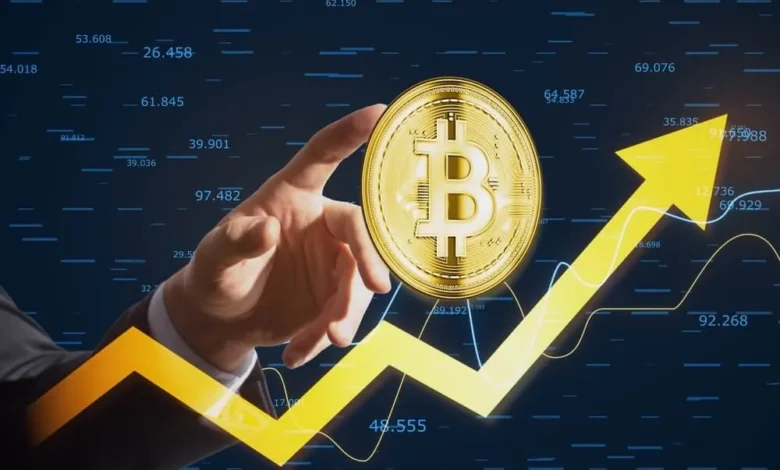India Ban Crypto Exchanges: Impact on Traders and Future Regulations

The cryptocurrency market has exploded into the global financial landscape, with India emerging as a formidable force in this digital revolution. Countless Indian investors have dived headfirst into the volatile world of digital currencies, driven by the allure of rapid profits and the promise of financial freedom. Yet, this meteoric rise has not come without its shadows. The Indian government, concerned about the darker side of cryptocurrencies—money laundering, tax evasion, and the potential destabilization of the financial system—has raised frequent alarms, casting a cloud of uncertainty over the market.
Amidst this mounting tension, whispers of a looming ban on crypto exchanges in India have sent tremors through the industry. For many traders, this news is a gut punch, triggering a mix of fear, confusion, and anger. While some view the government’s intervention as a necessary step to safeguard investors from potential risks, others argue it could suffocate innovation and hinder India’s potential to be a leader in the global crypto space. We’ll dissect the potential ramifications of such a ban, how it may reshape the crypto landscape, and what the future holds for the regulatory environment in India.
Overview of Cryptocurrency Growth in India
| Year | Crypto Users (Approx.) | Total Investments (INR) |
| 2018 | 5 million | 10,000 crore |
| 2019 | 8 million | 18,000 crore |
| 2020 | 12 million | 25,000 crore |
| 2021 | 20 million | 50,000 crore |
| 2022 | 27 million | 75,000 crore |
Why Is India Contemplating a Ban on Crypto Exchanges?
India’s government is teetering on the edge of a monumental decision—one that could reshape the entire cryptocurrency landscape. At the heart of this consideration are a host of complex and pressing concerns. Financial fraud is a top worry, with the decentralized nature of crypto making it ripe for exploitation by malicious actors. Tax evasion, too, looms large, as crypto’s anonymity allows individuals and businesses to bypass the traditional tax system with relative ease.
But that’s not all. The government’s unease deepens with the looming shadow of illegal activity. Cryptocurrencies, unregulated and elusive, could be misused for anything from money laundering to funding illicit operations, making them a serious headache for authorities striving to maintain law and order in the financial sector. The lack of a central body to oversee and regulate the crypto market only exacerbates these issues, leaving the government scrambling to find a way to preserve market integrity while safeguarding the interests of investors.
Impact on Indian Crypto Traders

If the ban goes through, the repercussions for Indian crypto traders could be nothing short of catastrophic. For countless investors, their hard-earned savings have been funneled into the volatile world of cryptocurrencies, driven by the dream of astronomical returns. A sudden, sweeping ban would undoubtedly send shockwaves through the market—sparking a frenzy of panic selling, as traders scramble to offload their digital assets before the rug is pulled out from under them.
The consequences would ripple far beyond just financial losses. The trust that investors have painstakingly built in the system could crumble, leaving a deep scar on the relationship between traders and the financial framework. As the crypto market hemorrhages value and confidence evaporates, many may find themselves grappling with significant losses and a profound disillusionment in the very idea of digital investing.
Regulatory Landscape: What Has Been Done So Far?
| Regulation/Action | Year | Impact on Crypto Market |
| RBI Circular on Crypto Ban | 2018 | Halted crypto trading temporarily |
| Supreme Court Overturns Ban | 2020 | Revived interest in crypto |
| Crypto Bill Proposal | 2021 | Created uncertainty among traders |
| Current Proposed Ban | 2024 | Increased fear and speculation |
Potential Consequences of the Ban
The impending ban casts a dark shadow over India’s economic landscape, threatening to unleash a cascade of dire consequences. Crypto exchanges are not just platforms—they are engines of innovation, hubs of technological progress, and significant contributors to employment and foreign investment. A sudden ban could send these thriving businesses fleeing from India’s shores, dragging economic opportunities along with them in its wake. The loss of cutting-edge tech infrastructure and the draining of foreign capital would leave gaping holes in India’s financial ecosystem, stifling growth and potentially sending the economy into a tailspin.
How Traders Are Reacting to the News
The news of the potential ban has sent Indian traders into a frenzy, triggering a wave of withdrawals and strategic shifts. Panic is palpable in the market as traders, fearing a swift regulatory crackdown, scramble to protect their assets. Many are hastily shifting their holdings to international exchanges, hoping to find sanctuary beyond the reach of India’s volatile regulatory environment. Others are hedging their bets by diversifying into more traditional, safer investment avenues, seeking refuge from the looming storm. With uncertainty hanging over their heads, traders are being forced to adapt quickly, but the damage to confidence is already palpable.
Future of Crypto Regulations in India
| Regulation Aspect | Possible Future Development |
| Licensing Requirements | Mandatory licenses for operating crypto exchanges |
| Taxation Policies | Clear guidelines on crypto taxation |
| Investor Protection | Regulations to protect investor interests |
| Anti-Money Laundering | Stringent measures against illegal activities |
Global Perspective: How Other Countries Handle Crypto
While India grapples with its impending crypto crackdown, many nations have already charted their course through the stormy waters of cryptocurrency regulation. Countries like the USA and Japan have forged ahead, embracing digital currencies but under tightly controlled frameworks designed to protect consumers and stabilize markets. In stark contrast, India’s potential ban threatens to isolate the nation from the broader global crypto ecosystem, severing its connections to a rapidly evolving financial frontier. This could have far-reaching consequences, stunting India’s technological growth and restricting its access to the innovation that crypto-powered economies are leveraging to push forward on the world stage.
The Role of Blockchain Technology
At the heart of the cryptocurrency revolution lies blockchain technology, a marvel of decentralized innovation that extends far beyond just digital money. Blockchain has the potential to transform entire industries—from reshaping financial services to revolutionizing supply chains, and even enhancing healthcare systems with transparency and security. By banning crypto exchanges, India risks not just losing access to digital currencies, but also stifling blockchain innovation that could have far-reaching applications. A blanket ban could choke off this technology’s potential, leaving India trailing behind in a global race for tech supremacy.
What Can Traders Do Now?
For traders caught in the eye of this storm, staying ahead of the curve is paramount. With regulations hanging in the balance, now is the time for diversification—spreading assets across various investment vehicles to minimize risk. Staying informed about shifts in the regulatory landscape is essential, as is ensuring compliance with any new legal frameworks that may arise. Traders should also consult with seasoned financial advisors who can offer guidance and insight during these turbulent times. As always, using secure and reliable platforms will be key to safeguarding assets from sudden regulatory disruptions. The road ahead is uncertain, but a cautious, informed approach can help mitigate some of the fallout.
Is There Still Hope for Crypto in India?
While the looming threat of a ban casts a dark cloud over India’s crypto future, a flicker of optimism still burns. Many industry experts hold onto the belief that rather than an outright ban, India may ultimately craft a regulatory framework that allows cryptocurrencies to flourish under a controlled environment. It’s not all doom and gloom—crypto advocates and experts alike are now looking toward the possibility of dialogue and negotiation with policymakers. Navigating this turbulent landscape means pushing for balanced regulations—ones that mitigate the risks without stifling innovation. The key to unlocking this potential lies in collaboration and advocacy, ensuring that India’s crypto future isn’t dictated solely by fear but shaped by informed thoughtful regulation.
Conclusion
The shockwaves of the potential Indian crypto exchange ban have sent traders into a frenzy, sparking a whirlwind of anxiety and uncertainty. While the government’s concerns—ranging from money laundering to financial instability—are not without merit, an outright ban seems a heavy-handed approach that could stifle the very innovation it seeks to control. The true challenge lies in striking a delicate balance, one that fosters regulation while allowing the crypto market to breathe, evolve, and thrive.
As India wrestles with this crossroads, it’s imperative for traders, investors, and industry stakeholders to stay on their toes—vigilant, adaptable, and proactive. The future of crypto in India may be shrouded in ambiguity, but one thing is clear: with the right regulatory framework in place, India could unlock vast, untapped potential. If the country can navigate this rocky terrain thoughtfully, the rewards could be immense, offering fertile ground for both technological growth and financial prosperity.
FAQs
What’s the latest on India’s potential crypto exchange ban?
At present, the Indian government is still toying with the idea of a ban, yet no definitive verdict has been handed down. Traders are in a state of suspended animation, eagerly awaiting the fog to clear on the proposed regulatory landscape.
What could the ban mean for Indian crypto investors?
If the ban is enforced, Indian investors could find themselves staring down the barrel of rapid losses, triggered by panic-driven sell-offs. Investors might also need to make a mad dash for international exchanges, seeking refuge in foreign platforms to salvage their investments.
Are there any viable alternatives to crypto exchanges in India?
Yes, alternative routes like peer-to-peer (P2P) trading platforms and decentralized exchanges (DEXs) are still on the table. However, these come with their labyrinthine risks and complexities, potentially adding another layer of uncertainty for traders.
What should traders do if the ban becomes a reality?
Should the worst-case scenario unfold, traders would be wise to withdraw their assets into secure, self-managed wallets and keep their fingers firmly on the pulse of legal developments. Additionally, consulting with professional financial advisors for tailored strategies would be prudent to mitigate potential damage.
Why is the Indian government so opposed to cryptocurrencies?
The government’s opposition stems from fears of rampant financial fraud, the specter of tax evasion, and the lack of a centralized authority to regulate the crypto market—factors that threaten to destabilize the financial ecosystem.
Is it possible for India to regulate crypto rather than imposing an outright ban?
Absolutely. Many crypto experts and thought leaders are advocating for a balanced regulatory framework that could protect investors while simultaneously nurturing the technological innovation that cryptocurrencies enable.
How can traders stay on top of shifting crypto regulations in India?
Traders must remain hyper-vigilant—scanning official government releases, subscribing to reputable financial news sources, and engaging in crypto communities to stay ahead of any regulatory changes that may arise.




